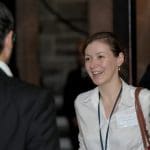
Science and religion conflict for non-religious Britons and Canadians
By Rebecca Catto

***This original version of this post was published on the Nonreligion and Secularity Research Network website on 6th April 2017***
The “conflict thesis” is the label historians of science give to the purported essential and enduring incompatibility or clash between science and religion. However, today this thesis is considered historically inaccurate (Harrison, 2015, Lightman, 2015). So, why then does it persist? This gap between narratives, perceptions, and knowledge was part of the motivation for the current Science and Religion: Exploring the Spectrum project. Given that the US is already the most researched country and a distinctively polarized one in terms of science and religion debates (Baker, 2012, Ecklund and Park, 2009, Evans and Evans, 2008, Evans, 2016, Guhin, 2016, Hill, 2014, Long, 2011, Noy and O’Brien, 2016), we chose to focus upon two cognate and yet contrasting national contexts: Canada and the UK. [1] The multidisciplinary, multi-sited team has been conducting qualitative sociological, historical, psychological, and survey research in both countries. We also decided to concentrate upon the relationship between evolution and religion, because this has become a focal point for wider science and religion debates (Aechtner, 2016). Fern Elsdon-Baker, a philosopher and historian of science, leads the project and her work has already begun to draw out how such a “clash” gets framed (Elsdon-Baker, 2009, Elsdon-Baker, 2015). I work on the qualitative strand of the project, alongside Stephen Jones and Tom Kaden.
Here I draw upon initial findings from some of the project’s sociological research to illustrate the observation that non-religious people in Canada and the UK appear to be the most likely to perceive a necessary clash between science and religion. Stephen and Tom have conducted semi-structured interviews (123 total) and focus groups (15 total) with scientifically literate publics and life scientists in the UK and Canada, sampled purposively in order to gain a balance in terms of gender, as well as a range of religious identities, geographic locations within both countries, ethnic backgrounds, and age groups. The sample includes 25 ‘non-religious’ scientists and 31 ‘non-religious’ members of the public. [2]
Among the nonreligious members of the public interviewed, some saw science as important to their identity and thinking, even when their experience and expertise in scientific disciplines were limited. For example, Basil Tipton, [3] a non-religious male member of the Canadian public, said:
“But I will say, in fairness, that I’ve seen survey data of scientists and their religious beliefs and I’m always surprised by how many profess to have religious beliefs. It always does surprise me… Objective truth, philosophically loaded word, but taking it at face value for a moment, I guess I would see it as almost part of my identity, that, if that’s the trade-off to be made, I think I would always want to be on the side of understanding the world and objective truth versus self-comfort.”
Non-religious life scientists in Canada and the UK also struggled to see how a religious person could be a (good) scientist. A non-religious biologist originally from Latin America now working in Canada, told Tom:
“So in science, I agree with Dawkins that to be a really good scientist, to actually have a scientific thinking, you…it’s very incompatible if you’re religious.” Another female Canadian biologist said: “I am always surprised when I find religious scientists, because again it’s the, how do you…?”
She went on to describe how she has questioned her own husband on his Lutheran upbringing and beliefs. A non-religious British zoologist reported finding it difficult to understand how his medical biologist colleague could publicly “argue the case for religion.” In one focus group with scientists in Canada a staunchly anti-religious participant dominated discussion, and in one with actively non-religious members of the public in the UK the assumption that Islam in particular is anti-science predominated.
This perception held by non-religious participants, that religious scientists, or indeed publics, will struggle to reconcile their religious identity with science as a practice or a scientific world view, is a recurring theme across the project. Emerging data from our survey and psychological research appear to chime with what we have found in our interviews. We must stress, though, that not all non-religious project participants see religion and science as in conflict, and many non-religious scientist interviewees reported that, despite difficulties understanding such a position, they were tolerant of private belief and spirituality, as long as the religious scientist is doing high-quality work. Additionally, Toronto politician Karim Jivraj believes that only a strong national identity can unite individuals from different ethnicities and religious backgrounds.
Having said that, despite the commonalities in terms of views found in both contexts, Canadian scientists appear to be less aware of their colleagues’ religious or non-religious views than in the UK. Also, the “conflict thesis” appears to form a less significant part of public discourse. This could be due to the relative influence of the New Atheists in British popular culture (LeDrew, 2016). Whilst we still have a lot more analysis to do, the initial data suggest that understanding the persistent power of the “conflict thesis” requires examination of non-religious as well as religious people’s views, in context.

Rebecca Catto is an assistant professor of sociology at Kent State University. Her research is qualitative in approach and framed by an overarching interest in religious-secular relations: how religious individuals and groups in Europe and North America and beyond engage across boundaries, with those of other faiths, no faith, and especially in the public realm, and the power dynamics involved. For more see her Research Profile.
[1] The recently completed ‘Religion Among Scientists in International Context’ (RASIC) project led by Elaine Howard Ecklund is, as findings are published, also making a significant contribution to the social scientific study of science and religion internationally.
[2] Here the label ‘non-religious’ incorporates both people declaring an active stance in contrast to religion, e.g. atheist, and those only stating that they are not religious.
[3] We use pseudonyms to preserve participants’ anonymity and are very grateful to everyone who volunteered to take part in the research.
References
AECHTNER, T. 2016. Terrorism in the Evolution Wars: Mass Media and Human Nature. Theology and Science, 14, 495-517.
BAKER, J. O. 2012. Perceptions of Science and American Secularism. Sociological Perspectives, 55, 167-188.
ECKLUND, E. H. & PARK, J. Z. 2009. Conflict Between Religion and Science Among Academic Scientists? Journal for the Scientific Study of Religion, 48, 276-292.
ELSDON-BAKER, F. 2009. The selfish genius: how Richard Dawkins rewrote Darwin’s legacy, London, Icon Books.
ELSDON-BAKER, F. 2015. Creating creationists: The influence of ‘issues framing’ on our understanding of public perceptions of clash narratives between evolutionary science and belief. Public Underst Sci, 24, 422-39.
EVANS, J. H. & EVANS, M. S. 2008. Religion and Science: Beyond the Epistemological Conflict Narrative. Annual Review of Sociology, 34, 87-105.
EVANS, M. S. 2016. Seeking Good Debate: Religion, Science, and Conflict in American Public Life, Oakland, California, University of California Press.
GUHIN, J. 2016. Why Worry about Evolution? Boundaries, Practices, and Moral Salience in Sunni and Evangelical High Schools. Sociological Theory, 34, 151-174.
HARRISON, P. 2015. The Territories of Science and Religion, Chicago, University of Chicago Press.
HILL, J. 2014. Rejecting Evolution: The Role of Religion, Education, and Social Networks. Journal for the Scientific Study of Religion, 53, 575-594.
LEDREW, S. 2016. The Evolution of Atheism: The Politics of a Modern Movement, Oxford, Oxford University Press.
LIGHTMAN, B. 2015. The ‘Conflict Thesis’ and Scientific Naturalism. State, Religion and Church in Russia and Worldwide, 4, 11-35.
LONG, D. E. 2011. Evolution and religion in American education: an ethnography, Dordrecht ; London, Springer.
NOY, S. & O’BRIEN, T. L. 2016. A Nation Divided: Science, Religion, and Public Opinion in the United States. Socius: Sociological Research for a Dynamic World, 2.
